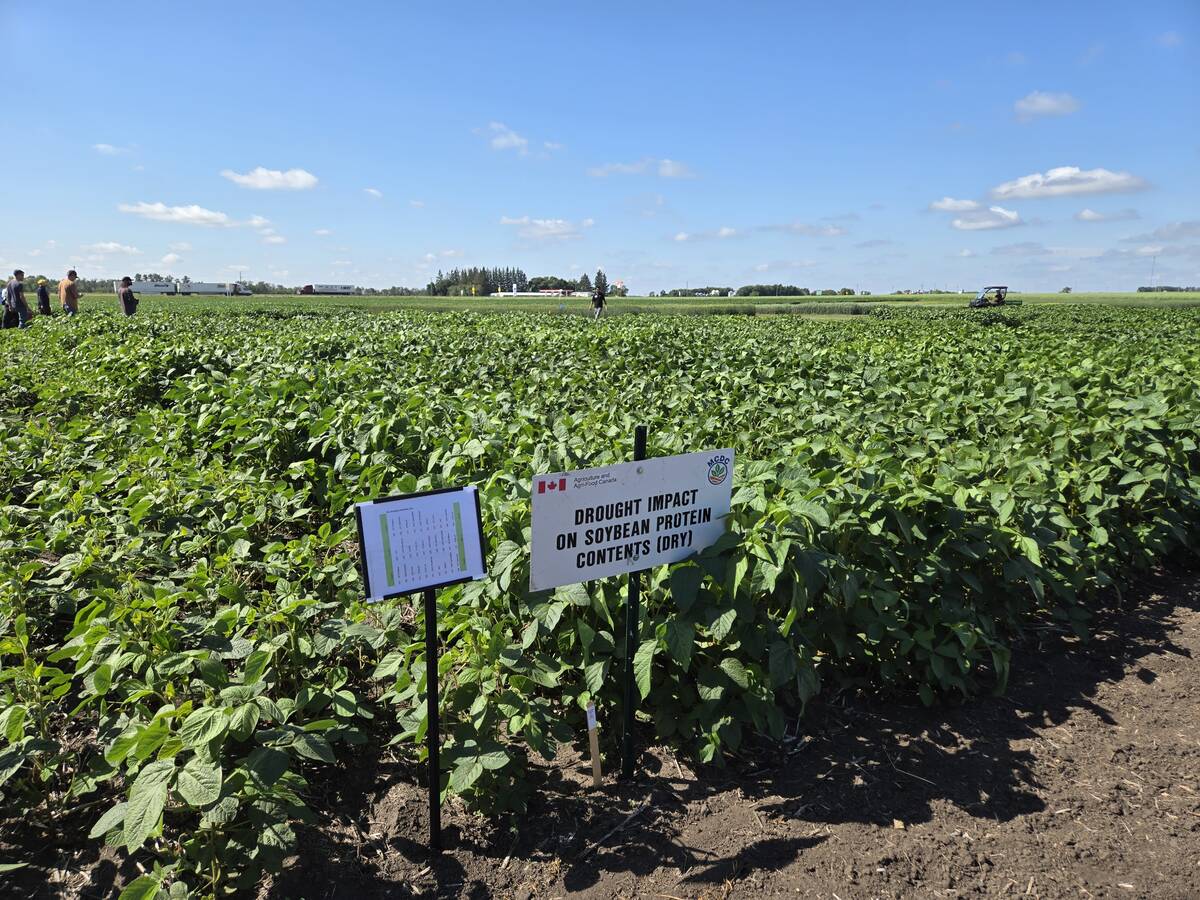Western Producer reporter Karen Briere travelled to Ukraine and reports on Canada’s role in development programs.
KIEV, Ukraine – Life in a post-Soviet world may be better for most Ukrainians, but the economic adjustments are taking too long for some.
They are looking elsewhere for work or to live permanently, and the Canadian Prairies are a natural fit.
Canada has been on the receiving end of several waves of Ukrainian immigrants over the decades and is in need of skilled workers.
Read Also

Carberry field day looks for agriculture solutions
Manitoba farmers explored research solutions for resilient crops, perpetual agronomic issues and new kinds of agricultural products at a field day at the Manitoba Crop Diversification Centre in Carberry on Aug. 6.
At the Kiev Youth Labour Centre, Vita Shubert sits surrounded by shelves of binders containing the personal documents of welders, truck drivers, mechanics and meat cutters who have applied to emigrate.
In the last year, 800 to 1,000 people have filed birth and marriage certificates, passport information and work and education records that are required to move to Canada.
This is not a process one embarks upon without thought.
Shubert and other staff help process the documents, set up job interviews, book airline tickets and translate for potential employers.
This week, 12 Saskatchewan employers were expected in Kiev to select 60 to 70 workers to help fill labour shortages caused by the province’s booming economy.
“We also have a shortage of skilled workers,” Shubert said.
“But they can’t get work in the villages.”
Canada is attractive to Ukrainian workers because of its stability and higher wages.
Gennadiy Rusanov, operations manager for the Saskatchewan Institute of Applied Science and Technology’s Decentralized Management of Skills Training in Ukraine project, said the annual income for a welder in Kiev is $15,000 to $18,000. In rural areas it could be as low as $1,000.
It’s no wonder welders look outside the country.
About three years ago, liquid storage tank manufacturer Northern Steel in Tisdale, Sask., hired 40 Ukrainian welders through the Saskatchewan Immigrant Nominee Program (SINP).
Production manager Doug Snider said the experience has had its ups and downs.
“We’ve only managed to retain 18 of them,” he said.
The others have moved to British Columbia, Alberta or Saskatchewan cities, but only one returned to Ukraine. Snider said Tisdale is perhaps a little too quiet for those used to a more urban atmosphere.
He said companies do take on more risk if they spend money to bring foreign workers to Canada, but at the same time they need the labour.
There is no minimum period that an immigrant worker is required to stay with an employer, although under the SINP, workers are supposed to work for the company that first offered them Canadian employment.
Snider said the employees who have stayed are good workers who are learning English, fitting into the community and building a life in their new home.
Other companies report similar experiences.
Shubert agreed that workers from Kiev, with its population of 4.5 million, take a while to adjust to their new life in Saskatchewan.
“Everything is different,” she said.
“There is the language barrier.”
At the same time, most are “charmed with the openness of Canadians,” she added, and amazed at the lack of security required. Children can run and play more freely than they could in Kiev.
“Some eight to 10 families have had babies in Saskatchewan.”
Shubert said most workers prefer the SINP because it has a quick nomination option from an employer and allows families to move together.
The federal government’s Labour Market Opinion program offers a two-year work permit for only the employee.
“We like the quick nomination program,” she said.
“It’s a good opportunity for every skilled worker to get a nomination within one month and then apply for a work permit and immi-gration.”
While the youth centre is helping workers leave the country, Rusanov is working on a project to keep them.
His program, a $4.7 million project funded by the Canadian International Development Agency, is working to make skills training at technical and vocational schools demand driven, uniform and more efficient across the country.
He said demographic projections show Ukraine will lose 400,000 people a year through lower birth rates, lower life expectancy and emigration.
“We are facing a serious labour shortage,” he said.
In some regions, 90 percent of students attend universities, he said, but the real demand is in the trades.
“We will have to bring in people from other countries.”















